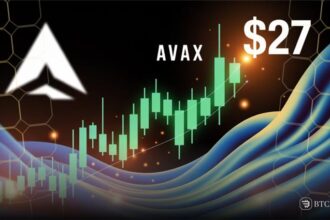A New York federal judge has rejected a joint effort by Ripple Labs and the U.S. SEC to lift a permanent injunction on institutional XRP sales and reduce Ripple’s $125 million fine.
Judge Analisa Torres ruled against the request for an “indicative ruling,” a move that would have allowed the Court to signal a willingness to change its final judgment during the appeal process.
Both Ripple and the SEC had agreed privately to settle the case, asking the Court to remove the injunction and slash the penalty by over 60%. But Torres refused. She cited Rule 60(b), which only allows changes to final judgments in rare and extraordinary cases.
In her view, this case didn’t qualify. The judge emphasized that final rulings serve not just the parties involved but the wider legal system and can’t be casually undone by mutual agreement.
How we got here
The legal clash began in 2020 when the SEC sued Ripple for selling XRP without registering it as a security. The agency claimed this denied investors crucial disclosures. In a split ruling in July 2023, Judge Torres found Ripple had broken the law in selling XRP to institutions, but not in retail sales.
The SEC then pushed for a stiff penalty and a sales ban. By August 2024, the Court agreed in part, issuing an injunction and a $125 million fine.
The parties later appealed but also entered settlement talks. In May 2025, they reached a deal, but it depended on the Court lifting the injunction and cutting the fine. The Court declined, stating neither side offered a strong enough reason to revisit the judgment.
Ripple’s road ahead
As a result, Ripple is still subject to the injunction, which means the full punishment is still applicable, at least for now. Stuart Alderoty, Ripple’s legal chief, said it’s up to the company to decide whether they want to pursue further appeal or continue battling it out in court.
Attorney Fred Rispoli offered his thoughts on the case and has pointed out that this ruling demonstrates there hasn’t been too much change within the SEC under different leadership. He suggested that both sides will once again end up reaching mutual agreement, this time leaving the Court’s decision final.
Regardless of this drawback, XRP’s legal status as not being considered a security for secondary market transactions is unchanged. The prohibition is only relevant to Ripple’s direct institutional sales. Ripple’s operations persist for now, but they are more closely monitored. The battles may be waning, but there is still a long road ahead.







